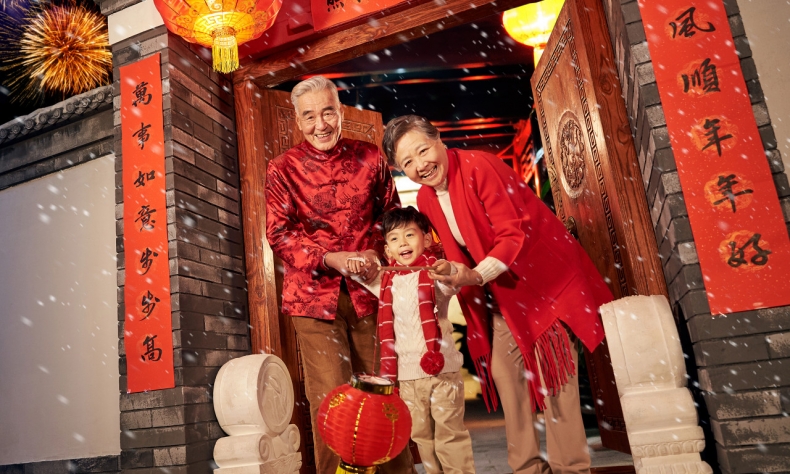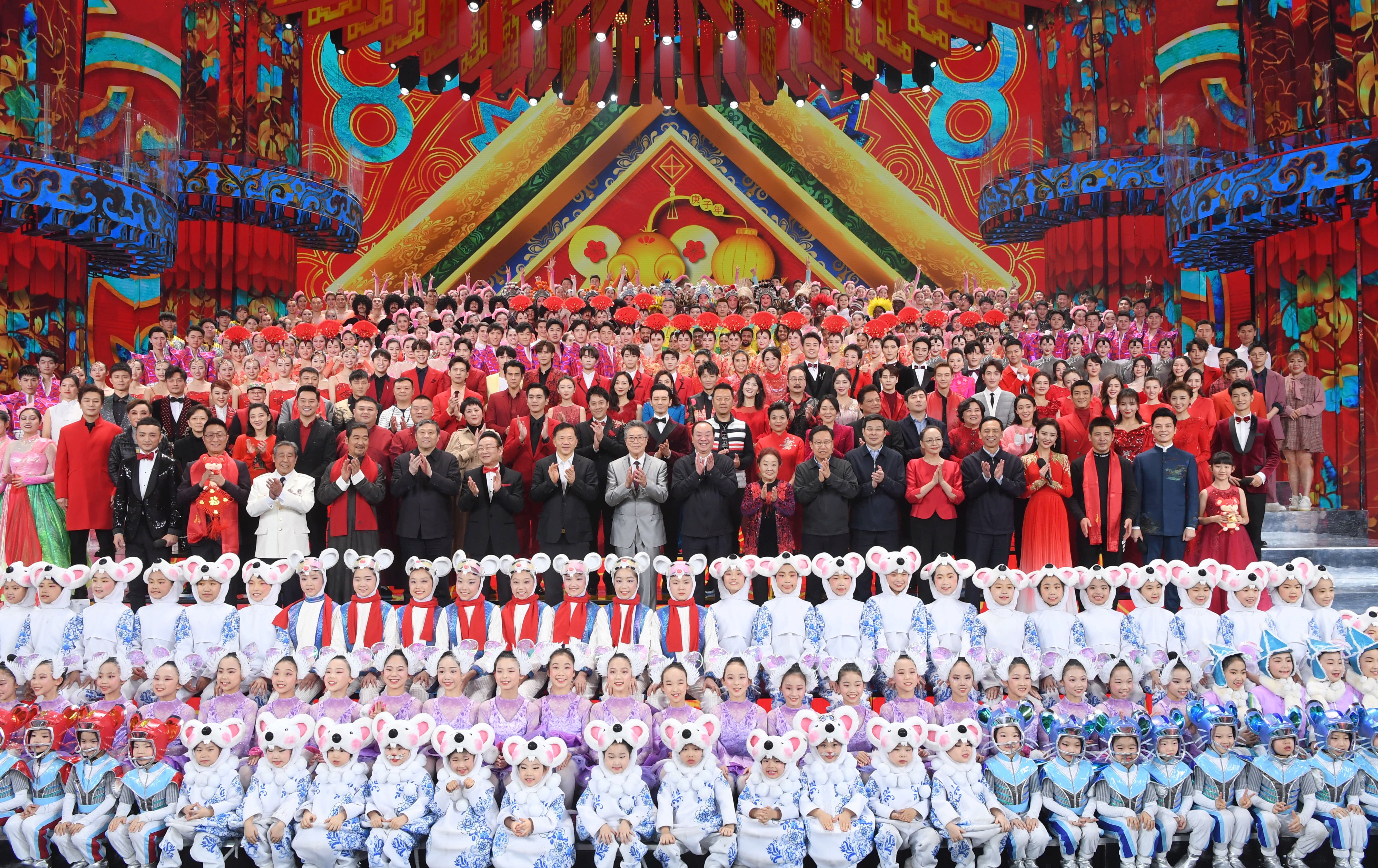Chinese New Year 2021: Keeping Traditions Alive Despite COVID-19

Following a turbulent and difficult Year of the Rat, the calm and dependable nature of the Ox will be a much welcome change.
The Lunar New Year, otherwise known as Spring Festival or Chunjie (春节), is just around the corner – falling this year on February 12.
Spring festival, which marks the first new moon following the winter solstice, is regarded as the most important holiday in Chinese culture – representing a time of great change and new beginnings. Rooted in Chinese folklore and dating back to ancient times, the celebration is packed full of unique traditions still practiced by millions around the world today.
Due to the COVID-19 pandemic, the celebration will be quite different from in other years. Many traditions will, of course, remain; some will be changed or adapted; while, others will have to be missed entirely.
Preparations underway
Cleaning the house before the Chinese New Year is a time-honored tradition that will remain unaffected this year. All corners of the house must be thoroughly cleaned in preparation for the festival and so windows will be scrubbed, floors swept, and furniture dusted and polished. The symbolism behind this end-of-year ritual is to wash away the bad luck.
After clearing out the old, it is time to bring in the new. To do this, Chinese people take a trip to the mall to buy new things – most importantly a new outfit to be worn on New Year’s Day. The tradition that all clothes and accessories must be brand-new dates back to the Northern and Southern dynasties (420–589 AD).
Those traditions from ancient China have been changed in modern China, especially in the cities. Many families, especially working couples, do not have enough time to clean the full house and not necessarily wear brand-new clothes on New Year’s Day.
The most important decoration – and arguably the most important custom for celebrating Chinese New Year – are the Spring Festival couplets. Traditionally, the couplets are hung on either side of the home’s main entrance on New Year’s Eve, where they will often remain until being replaced the following year.
This tradition dates back to the Zhou Dynasty (1046-256BC) and will of course be continued this year. In ancient times, Chinese people would fix peach boards inscribed with the name of two-door guardian deities (Shentu and Yule) to ward off evil things. Nowadays, the peach boards are replaced red paper, and in the places of the names of the two guards are a pair of poetry lines expressing festive cheer and positive wishes for the year ahead.
Once all the preparatory traditions have been observed, the festival can begin.

How this year will be different
As the nation’s most important holiday, the Spring Festival has always been a time for families to come together. And given the trend towards urbanization in recent years, it has taken on even greater importance. Indeed, for many, Spring Festival is the only time of year when families are able to spend time together.
Due to the COVID-19 pandemic, however, authorities have advised against traveling during this year’s festival. And although travel restrictions are not in force – except in one or two high-risk areas – most have chosen to abide by the government’s advice and are instead finding new ways to keep old traditions alive.
Melody Hou, a 25-year-old social media editor from Beijing, spoke to China Focus about how this year will be different. This year will be a little sad, she said, because some people are not able to return home and be with their family.
“Family unity is the most important thing in the Spring Festival customs and for a lot of migrant workers the 7-day-break is their only time of the year to go home.”
Melody, whose family usually spends the holiday with her grandparents in Shanxi Province, explained that her family is making a special effort to keep traditions alive this year. People have figured out many ways to show their love, she said. I know many parents in China send their children a little ‘taste of home’ through express delivery.
“My grandmother has sent some potatoes she grew as well as her home-made pancakes. I know When I bite into them it will feel like she is around the table with us.”
Keeping traditions alive
For those that are separated from loved ones this year, the hardest part will ultimately be felt on New Year’s Eve – the time when they would usually gather around the table for the annual festive banquet.
The aptly-named ‘reunion dinner’ – or nian ye fan (年夜饭) – is the most important part of the festival and as with all the Lunar New Year celebration, it encapsulates millennia-old customs and traditions passed down from generation to generation.
One tradition sure to be continued despite the pandemic is the annual dumpling-making ritual. Dumplings are by far the most popular food associated with Chinese New Year. The tradition is to fold them in a precise manner that they resemble ancient Chinese currency — the yuan bao (元宝). Shaped like little ingots, the dumplings are an important symbol of wealth and good fortune.
As sure as dumplings will be on almost every table in China, the television is sure to be turned to be tuned into CCTV’s Spring Festival Gala.
The four-and-a-half-hour live variety show known locally as Chunwan (春晚), which features an array of song and dance acts, acrobatics, and slap-stick comedy, has now a mainstay for Chinese families.
The show has in fact become so popular that last year, it broke its own Guinness World Record as the world’s most-watched TV show, with an unbelievable audience of 1.23 billion. With such a buzz surrounding the event, social media is always awash with speculation of which celebrities and influences will feature this year.
Year of the ox
In accordance with the Chinese calendar – made-up of twelve earthly branches represented by an animal and five corresponding element years — 2021 is the Year of the Metal Ox.
In Chinese culture, the Ox is a faithful friend that has made great contributions to the development of society. As a valued animal because of its role in agriculture, the Ox is known for its strength, determination, diligence, and dependability.
Following a turbulent and difficult Year of the Rat, the calm and dependable nature of the Ox will be a much welcome change.
Here’s to bidding farewell to the old, and extending a very warm welcome to the new. Here’s to a strong and stable Year of the Ox. Xin Nian Kuai Le (新年快乐) – Happy New Year!
 Facebook
Facebook
 Twitter
Twitter
 Linkedin
Linkedin
 Google +
Google +







